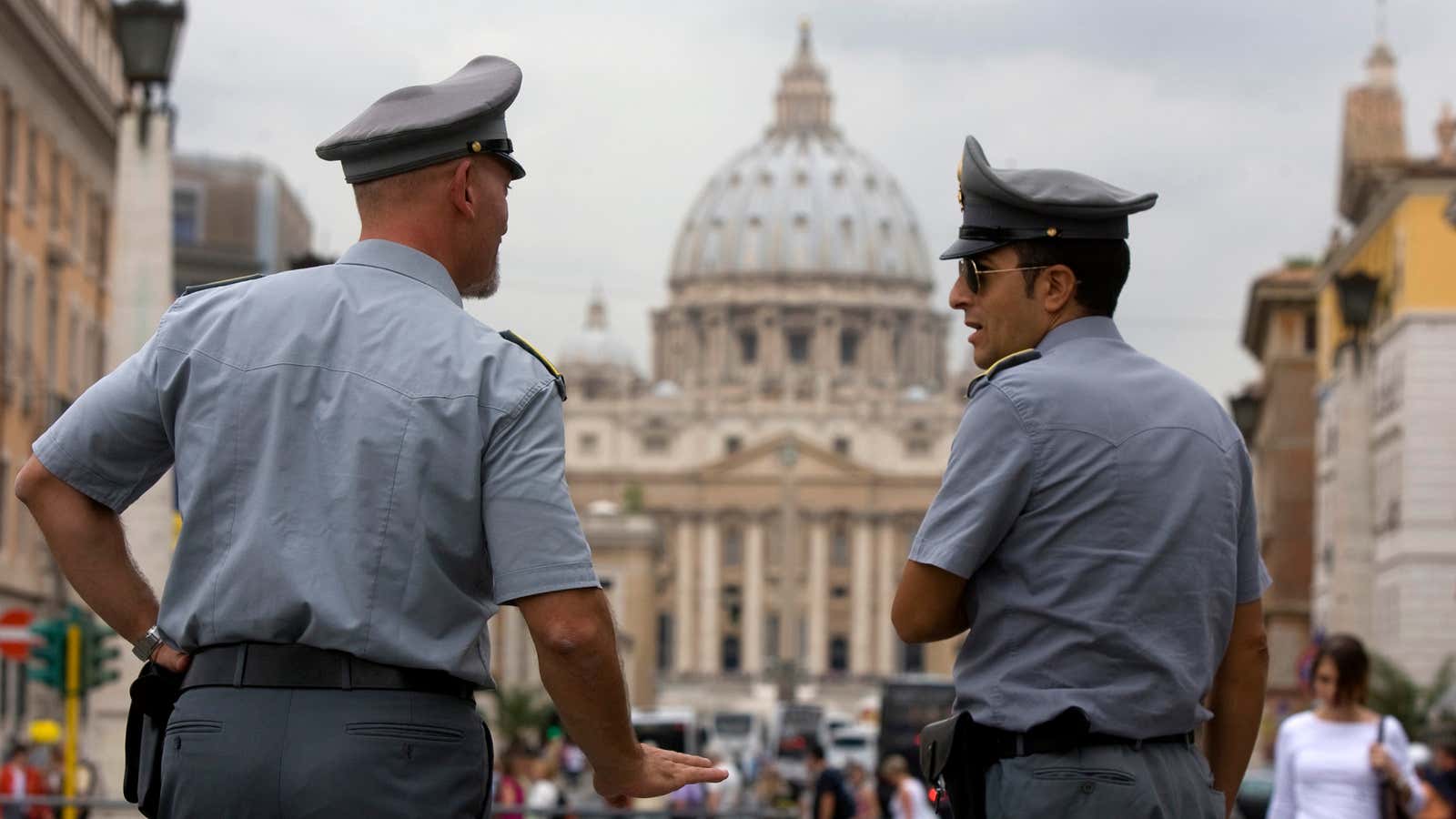The Bible is fairly clear about theft being against the rules, but charges against a Vatican Bank official suggest the religious text doesn’t give adherents enough guidance on embezzlement or tax evasion.
Pressure on offshore tax havens in Europe has increased significantly in recent years. Monseigneur Nunzio Scarano, an Italian banker who entered the priesthood to work at the Vatican’s financial institution, got caught up in that pressure. He spearheaded a comical plan to secretly fly €20 million ($30.4 million) in cash out of Switzerland and into Italy on behalf of a wealthy family looking to avoid the scrutiny of the new reporting requirements. Due to disagreements among the conspirators, including an Italian law enforcement agent who would use his position to avoid declaring the money, the plan never took off.
Along the way, Scarano’s phone was wire-tapped, leading to his arrest Friday, and today the Vatican bank’s director and his deputy resigned in disgrace. The relatively new Pope Francis is expected to push to reform the bank, a secretive institution widely suspected of moving money on behalf of the wealthy, the well-connected, and even criminals. It has been the subject of a number of lawsuits and criminal investigations, including one that resulted in the ouster of its president earlier this year. It’s unclear if other Vatican officials were involved in the plan to bring Swiss money into Italy, but Scarano’s involvement suggests they might have been destined for the bank’s vaults.
This isn’t the first time Scarano bungled an attempt to avoid financial reporting laws. Last year, he reported that burglars had stolen valuable paintings and silver from his home, which raised questions about the sources of the priest’s wealth. That, in turn, lead to the discovery of €560,000 in Vatican bank funds transferred to himself to pay the mortgage on his apartment. Here’s how his lawyer explains that transaction:
Because of “controversial reasons of a family nature,” Monsignor Scarano had been advised to ask 56 friends to accept 10,000 euros apiece, in exchange for money transfers in the same amount, Mr. Sica said. All 56 are also being investigated by Salerno prosecutors.
This is likely what prosecutors call “structuring,” or attempting to avoid reporting requirements by creating many small transactions. It will be interesting to learn, if we ever do, what family reasons someone might have for arranging such a complicated pay-out.
